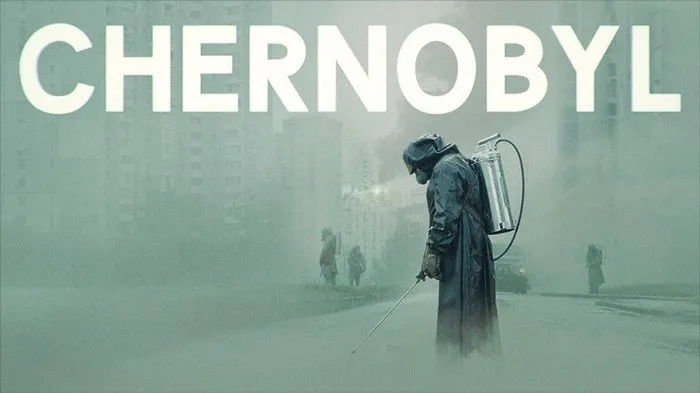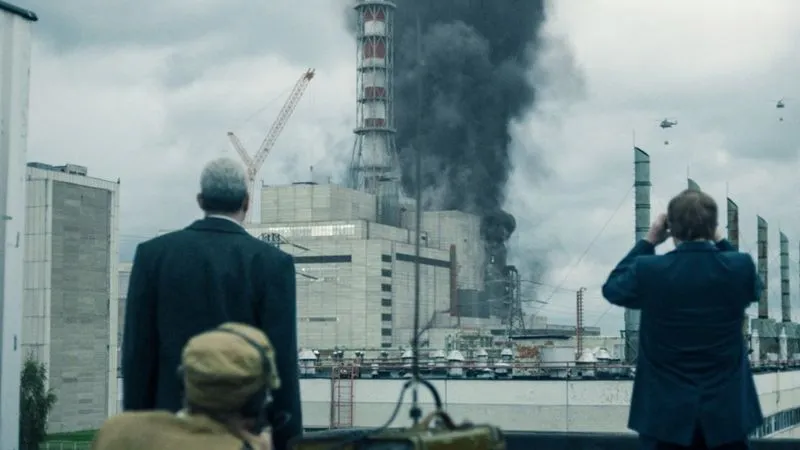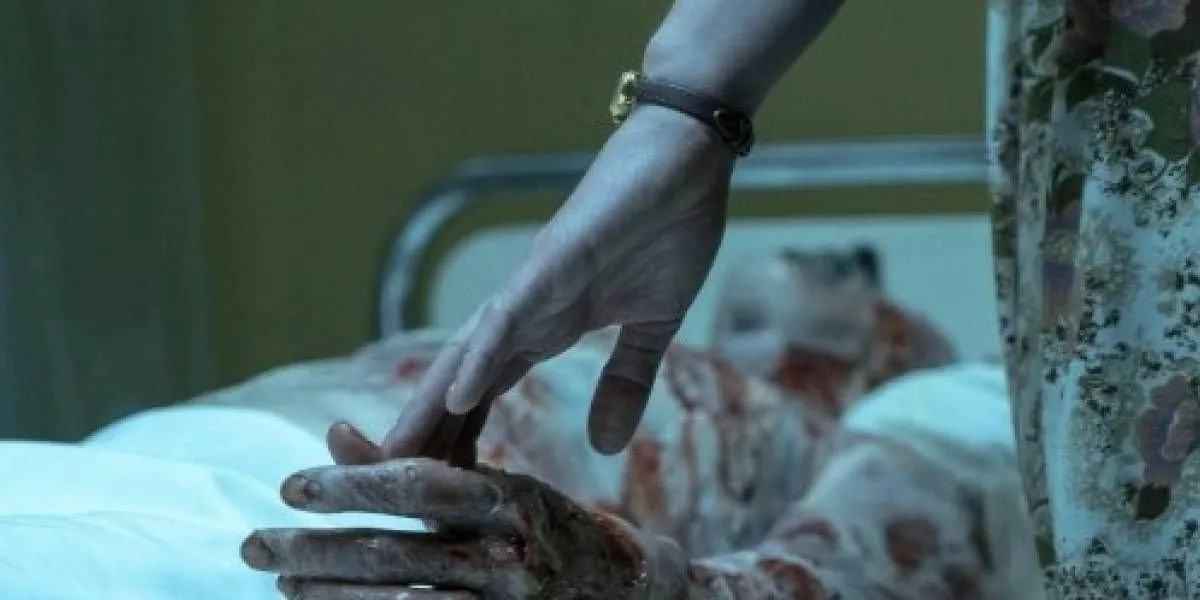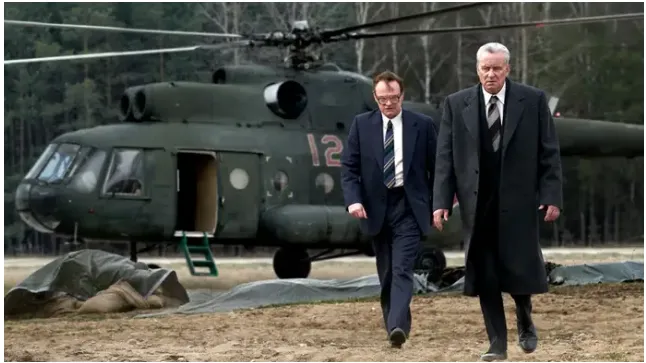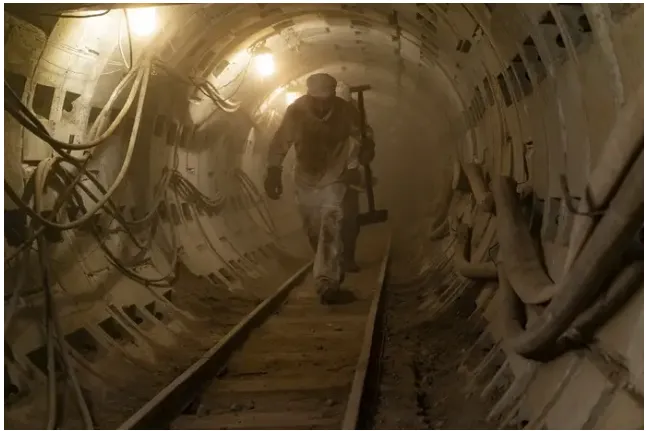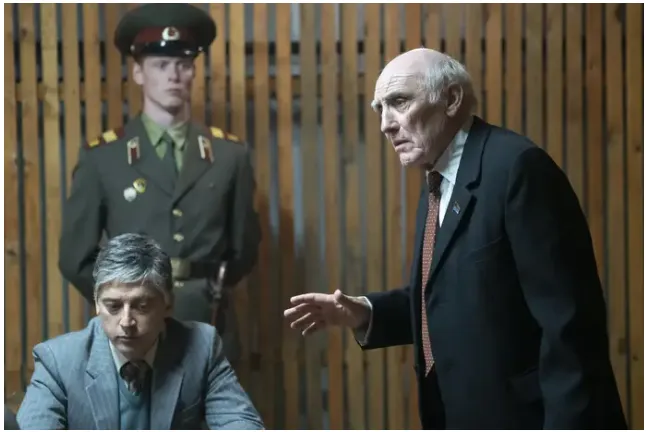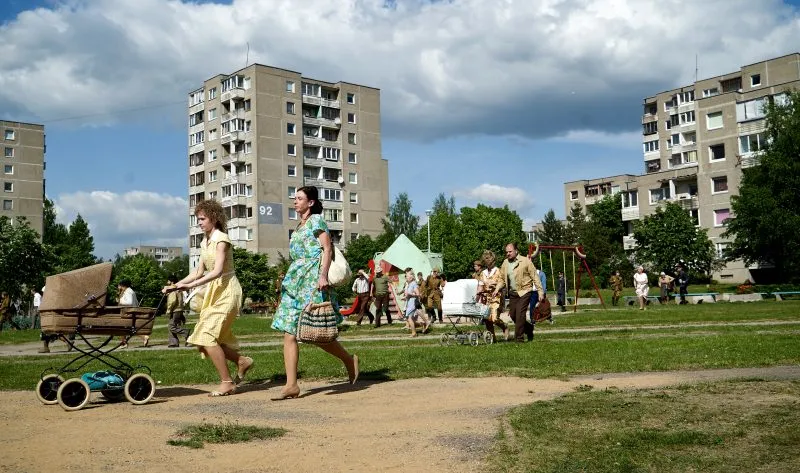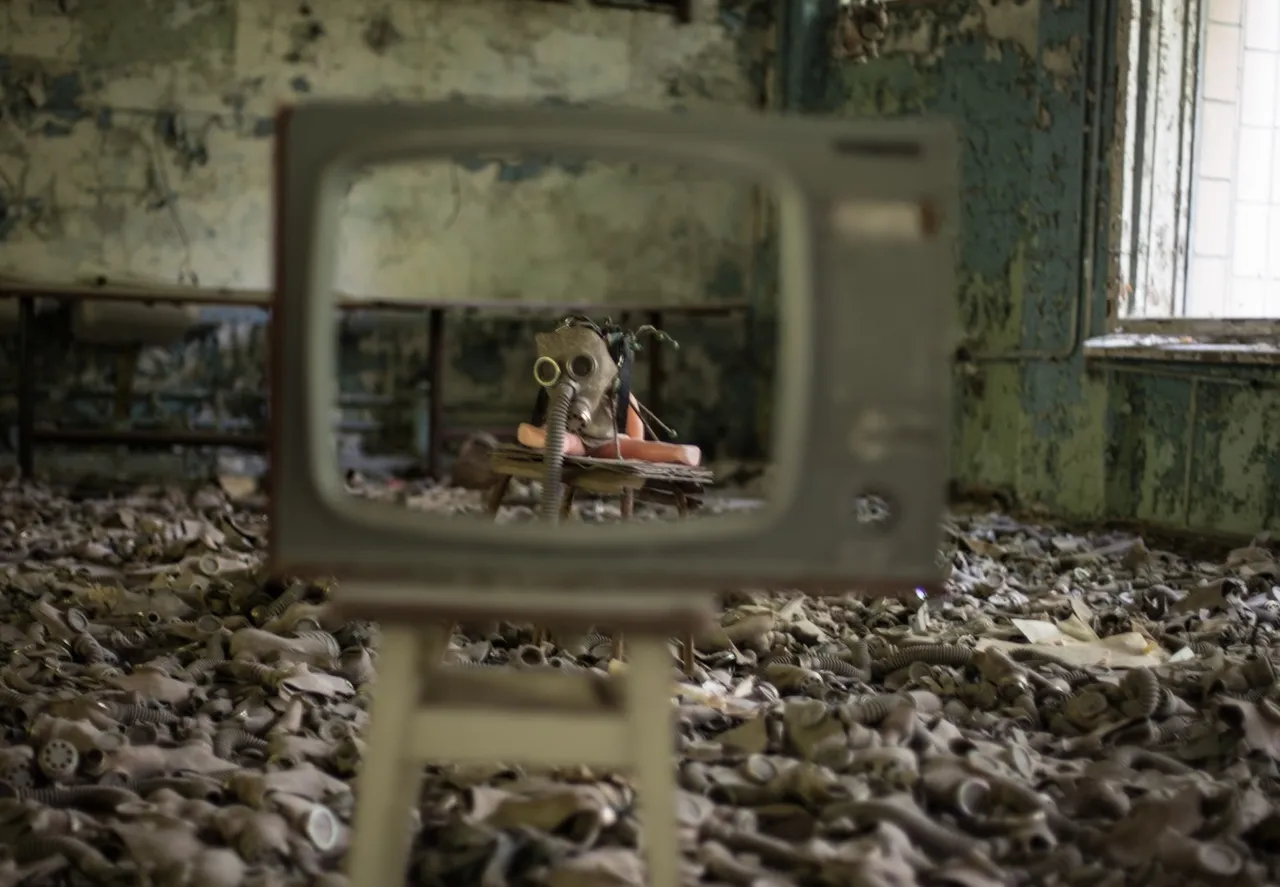Do you remember the first major disaster at a nuclear power plant, 35 years ago? It happened in the Soviet Union, around the border between Ukraine and Belarus, and it was so severe that in spite of their greatest attempt, the authorities were unable to hide it. So once word got out of what happened, it caused a wave of panic across Europe, along with a cloud of radiation sweeping over the land. Eventually, when the public fear abated, what remained of the event was a warning example of the dangers of nuclear power.
Two years ago this story was reexamined by a British production team and made into a five-part mini series. Though it has been slightly dramatized, the story follows the how the accident occurred, and the steps that were taken to respond to it. Overall the series retains a lot of documentary qualities. It pays a lot of attention to the way the tragedy was handled, including various failed initial attempts. It also offers a shocking impression of general life in the Soviet Union, and how its urgent need to conform to party policy became a direct impediment for efficient response. What I also found highly interesting, was how the series went into great lengths to examine the actual cause of the explosion.
Accident? What Accident? Oh, You Mean That Little Fire?
Right in the first episode the viewer is introduced to the smoothly operating state apparatus, when witness accounts of an explosion were dismissed right off the bat. Also, the "slightly elevated but not too serious" radiation levels were simply due to their inferior instruments maxing out at that rate. Yet, people were exhibiting symptoms of severe radiation poisoning, especially those who have been closest to the reactor. Eventually, once the figures in authority started to grasp the immensity of the disaster, their immediate reaction was to cut the phone lines and block transportation in and out of the city.
Throughout the five episodes one outrageous decision follows the next, and we get to see how people are sent to their certain deaths trying to prevent an even greater disaster, one of truly apocalyptic proportion, resulting in a giant thermonuclear blast that would have annihilated Kiev and possibly even Minsk, poisoning the entire Eastern half of the European continent. So strange as it might seem, there is a huge success story hidden under all that bungling - even though it remains debatable whether this actually could have happened.
Historically Accurate, or Exploited Creative License?
I am aware of the fact that certain things have been a bit exaggerated in the miniseries, particularly those types of things that will typically raise most eyebrows (as well as viewers' interest), namely the Soviet style complacence in the cover-up. Apparently, this is also where the series received most of its criticism by survivors and witnesses.
Personally I am not surprised that people who have grown up and learned to live in any system will ultimately defend it. It is part of the same Stockholm syndrome we keep seeing in many other scenarios, from 9-11 to Covid. Dissociative thinking is not that uncommon, especially on a collective level, most of all among people who are used to doing as they've been told. At the same time, it goes without saying that Western propaganda has created an image of the Soviet Union, which this series perpetuates... to make it more impressive for the same Western audience. Instead of criticizing them for it, I would rather extend this view to our current system. If something like this was to happen in Britain today, I'm sure the cover-up wouldn't be much different.
Hitting Close to Home - Quite Literally
At the time of the accident I was child living in Hungary, about a thousand kilometers from Chernobyl. While I don't actually remember anything of the accident itself, I recall some weird things my parents told me from that time. My mom, for example, has a story of lots of beautiful vegetables in the supermarkets, sold at such low prices that it seemed a bit suspicious. Later she pieced the puzzle together, reasoning that they were probably from the Soviet Union, unable to reach their usual destination in the West, so they dumped them on their unsuspecting satellite countries.
Another such tale has to do with the sand: Our neighbor was having a bit of construction work done, and I enjoyed playing in the great pile of sand he had brought in for it. Meanwhile my dad was listening in secret to Radio Free Europe, warning people about letting their children play outside due to the dangers of radiation. So while the USSR could not deny the disaster to the West, the Hungarian media took a bit longer before it even reported on it.
All in All, A Show Worth Watching
Taking all these bits and pieces into consideration, I still believe the Chernobyl miniseries to be highly recommendable. The fact that ultimately tipped the scale in its favor, was the vehement outcry of the Russian Communist party against this show, including a libel lawsuit. Of course, who else would be less inclined to enjoy a portrayal of what was perhaps their greatest failure? The only other series I would be even more interested in, is the Russian version of the story, a show supposedly produced by the Russian NTV station. However, I have not been so lucky to get my hands on that version. For those who have become interested in this British miniseries, here is the trailer to enjoy:
Take a Look at the Previous Posts in my Binge On This Series:
The Handmaid's Tale: A Not Too-Far-Off Dystopia
Twin Peaks: The Return - The Series Closing After 25 Years
Silicon Valley: Humor from the World of Tech and Money
Dark: Intense Time-Travel for Germanophiles
Twin Peaks: The Show That Changed Everything
The Man In the High Castle: What if the Nazis Had Won?
Lost: Mystery With Addictive Potential
Babylon Berlin: Sociopolitical Tremmors in the Weimar Republic
Rome: A Realistic Sandal Series
Carnivàle: A Throw-back to the Thirties
Weeds: The Hillarious Alternative to Breaking Bad
Mr. Robot: Hackers, Freedom, and Mental Issues
Das Boot: A Real German WWII Series
Black Sails: Pirate Lore Galore
Twelve Monkeys: Time Travel and Pandemic
The DocsMX 2020 Film Festival
